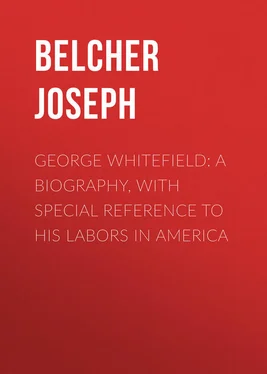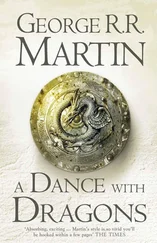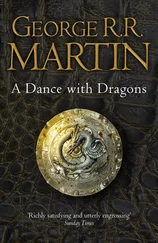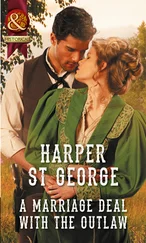Joseph Belcher - George Whitefield - A Biography, with special reference to his labors in America
Здесь есть возможность читать онлайн «Joseph Belcher - George Whitefield - A Biography, with special reference to his labors in America» — ознакомительный отрывок электронной книги совершенно бесплатно, а после прочтения отрывка купить полную версию. В некоторых случаях можно слушать аудио, скачать через торрент в формате fb2 и присутствует краткое содержание. Жанр: foreign_antique, foreign_prose, на английском языке. Описание произведения, (предисловие) а так же отзывы посетителей доступны на портале библиотеки ЛибКат.
- Название:George Whitefield: A Biography, with special reference to his labors in America
- Автор:
- Жанр:
- Год:неизвестен
- ISBN:нет данных
- Рейтинг книги:4 / 5. Голосов: 1
-
Избранное:Добавить в избранное
- Отзывы:
-
Ваша оценка:
- 80
- 1
- 2
- 3
- 4
- 5
George Whitefield: A Biography, with special reference to his labors in America: краткое содержание, описание и аннотация
Предлагаем к чтению аннотацию, описание, краткое содержание или предисловие (зависит от того, что написал сам автор книги «George Whitefield: A Biography, with special reference to his labors in America»). Если вы не нашли необходимую информацию о книге — напишите в комментариях, мы постараемся отыскать её.
George Whitefield: A Biography, with special reference to his labors in America — читать онлайн ознакомительный отрывок
Ниже представлен текст книги, разбитый по страницам. Система сохранения места последней прочитанной страницы, позволяет с удобством читать онлайн бесплатно книгу «George Whitefield: A Biography, with special reference to his labors in America», без необходимости каждый раз заново искать на чём Вы остановились. Поставьте закладку, и сможете в любой момент перейти на страницу, на которой закончили чтение.
Интервал:
Закладка:
"'Unloose my stammering tongue to tell
Thy love immense, unsearchable.'"
It is remarkable, under all the circumstances of the case, that Bishop Benson, a man never distinguished for his evangelical views, always showed his friendship for Whitefield. Not only did he offer him ordination when others might have refused, and defend him against the persecutions to which he was exposed, but he more than once gave him pecuniary help when it was much needed, though the young clergyman had never complained.
Thus early apprized of the secret of his strength, his profound aspirations for the growth of Christianity, the delight of exercising his rare powers, and the popular admiration, operating with combined and ceaseless force upon a mind impatient of repose, urged him into exertions which, if not attested by irrefragable proofs, might appear incredible. It was the statement of one who knew him well, and who was incapable of wilful exaggeration, and it is confirmed by his letters, journals, and a "cloud of witnesses," that "in the compass of a single week, and that for years, he spoke in general forty hours, and in very many sixty, and that to thousands: and after his labors, instead of taking any rest, he was engaged in offering up prayers and intercessions, with hymns and spiritual songs, as his manner was, in every house to which he was invited." Never perhaps, since the apostolic age, has any man given himself so entirely to preaching the gospel of Christ for the salvation of souls, adopting as his motto the language of the apostle Paul, " This one thing I do ."
CHAPTER II.
WHITEFIELD'S SUCCESS AS A PREACHER IN ENGLAND – FIRST VISIT TO AMERICA.
1736-1738
Whitefield, though thus prepared for action, was not impatient, but willing to wait till his duty was fully ascertained. On the Wednesday after his first sermon he went to Oxford, where, he says, "I was received with great joy by my religious friends. For about a week I continued in my servitor's habit, and then took my degree of Bachelor of Arts, after having been at the university three years and three quarters, and going on towards the twenty-second year of my age. My dear and honored friends, the Rev. Messrs. John and Charles Wesley, being now embarked for Georgia, and one or two others having taken orders, the interest of Methodism, as it was then and is now termed, had visibly declined, and very few of this reputedly mad way were left at the university. This somewhat discouraged me at times, but the Lord Jesus supported my soul, and made me easy by giving me a strong conviction that I was where he would have me to be. My degree, I soon found, was of service to me, as it gave me access to those I could not be seen with when in an inferior station; and as opportunity offered, I was enabled to converse with them about the things which belonged to the kingdom of God. The subscriptions for the poor prisoners, which amounted to about forty pounds per annum, were soon put into my hands; two or three charity schools, maintained by the Methodists, were under my more immediate inspection; which, with the time I spent in following my studies, private retirement, and religious converse, sweetly filled up the whole of my day, and kept me from that unaccountable but too common complaint of having any time hang upon my hands."
The stay of Mr. Whitefield at Oxford, however, was very short. He says, "By a series of unforeseen, unexpected, and unsought-for providences, I was called in a short time from my beloved retirement to take a journey to the metropolis of England. While I was an under-graduate, among the religious friends, I was very intimate with one Mr. B – n, a professed Methodist, who had lately taken orders, and was curate at the Tower of London. With him, when absent, I frequently corresponded, and when present took sweet counsel, and walked to the house of God as friends. He mentioned me to that late good and great man, Sir John Phillips; and being called down for a while into Hampshire, he wrote to me to be of good courage, and in the strength of God bade me hasten to town to officiate in his absence, and to be refreshed with the sight and conversation of many who loved me for Christ's sake, and had for a long time desired to see me."
On his arrival in London, Whitefield delivered his first sermon there in Bishopsgate church, on the afternoon of Lord's day, August 8. On entering the pulpit, his juvenile aspect excited a general feeling of his unfitness for the station, but he had not proceeded far in his sermon before it gave place to universal expressions of wonder and pleasure. If however he was thus exposed to the danger of vanity, as he says, "God sent me something to ballast it. For as I passed along the streets, many came out of their shops, admiring to see so young a person in a gown and cassock. One I remember in particular, cried out, 'There's a boy parson;' which, as it served to mortify my pride, put me also upon turning that apostolical exhortation into prayer, 'Let no man despise thy youth.'" From his first sermon to his departure, at the end of two months, his popularity in London continued to increase, and the crowds were so vast that it was necessary to place constables both inside and outside of the churches to preserve the peace. He tells us himself, "Here I continued for the space of two months, reading prayers twice a week, catechizing and preaching once, visiting the soldiers in the infirmary and barracks daily. I also read prayers every evening at Wapping chapel, and preached at Ludgate prison every Tuesday. God was pleased to give me favor in the eyes of the inhabitants of the Tower; the chapel was crowded on Lord's days; religious friends from divers parts of the town attended the word, and several young men came on Lord's-day morning, under serious impressions, to hear me discourse about the new birth , and the necessity of renouncing all in affection in order to follow Jesus Christ."
The preaching of Mr. Whitefield now excited an unusual degree of attention among persons of all ranks. In many of the city churches he proclaimed the glad tidings of great joy to listening multitudes, who were powerfully affected by the fire which was displayed in the animated addresses of this man of God. Lord and Lady Huntingdon constantly attended wherever he preached, and Lady Anne Frankland became one of the first-fruits of his ministry among the nobility of the metropolis. Her ladyship spent much of her time with Lady Huntingdon, from whose society and conversation she derived great comfort. She was a daughter of Richard, the first Earl of Scarborough; was for many years lady of the bedchamber to the Princess Anne, and to the Princesses Amelia and Caroline; and finally became the second wife of Frederic Frankland, Esq., a member of Parliament, from whose cruelty she endured much.
We have already said, that some time before this Messrs. John and Charles Wesley had embarked for Georgia, and to their names we might have added that of Mr. Ingham, also a member of the Methodist fraternity at Oxford.
Georgia, which was explored by Sir Walter Raleigh in 1584, had been colonized by debtors from Europe, by multitudes who had fled from the grasp of persecution, and by others who were interested in constructing a barrier against Spanish aggression. It originally had trustees in England, concerned for its interests, including sons of the nobility. The chief agent in executing the benevolent designs in view was the truly excellent General Oglethorpe, who admirably carried out the motto he gave to his companions in the work, " Non sibi sed aliis " – "Not for themselves, but for others." The children of poverty, taken from the overgrown agricultural population, already a tax upon parish bounty at home, were to be transferred in large numbers to the silk and indigo plantations which were established on the savannahs and bottoms south and west of the river, which thence derived its name from the peculiar conformation of the adjoining plains. Combined with these leading purposes, it was a cherished principle with the early patrons of this colony, that it should become the centre for the diffusion of the gospel among the natives; while charitable foundations were also laid for the secular and religious education of all who would take advantage of such provisions. The first Christians who left Europe to advance the spiritual interests of Georgia were Moravians, and the next were the Wesleys and Ingham. The records of the colony, as quoted in White's Historical Collections of Georgia, show that, Sept. 14, 1735, Charles Wesley was appointed "Secretary for the Indian affairs in Georgia," and that, Oct. 10, 1735, John Wesley was appointed "missionary at Savannah."
Читать дальшеИнтервал:
Закладка:
Похожие книги на «George Whitefield: A Biography, with special reference to his labors in America»
Представляем Вашему вниманию похожие книги на «George Whitefield: A Biography, with special reference to his labors in America» списком для выбора. Мы отобрали схожую по названию и смыслу литературу в надежде предоставить читателям больше вариантов отыскать новые, интересные, ещё непрочитанные произведения.
Обсуждение, отзывы о книге «George Whitefield: A Biography, with special reference to his labors in America» и просто собственные мнения читателей. Оставьте ваши комментарии, напишите, что Вы думаете о произведении, его смысле или главных героях. Укажите что конкретно понравилось, а что нет, и почему Вы так считаете.












